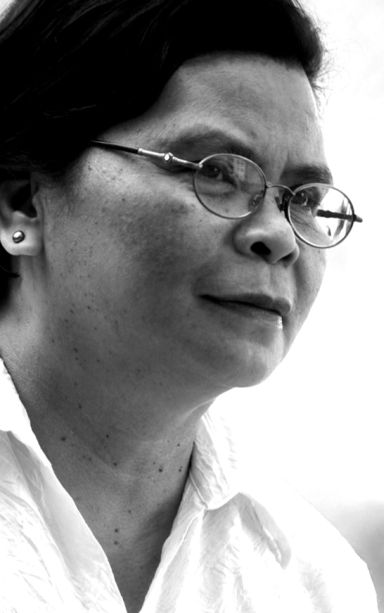
DELA CERNA
Today is the Sunday of the Divine Mercy. and yesterday was International Earth Day.
What a coincidence for celebrating what Pope Francis urged in Laudato Si to “show mercy on our common home.”
Earth Day started in 1990 after an oil spill in an area in California and since then became an annual event worldwide.
The theme for Earth Day 2017 is “Environmental and Climate Literacy,” and there is a worldwide campaign to develop environmental and climate-literate communities and schools particularly in the K to 12 curriculum.
I wonder if there is such an integration in the local K to 12 subjects.
The mother tongue is required in the lower grades from kinder to grade 3, and this is an opportune time to start educating children about the environment and climate.
Stories and folk tales about places abound in environmental information.
Environmental and climate terms in the mother tongue are very interesting.
Starting with the term “environment” which is “kalikupan” in Cebuano from “likop” which means surround or engulf or the more familiar term is the “palibut.” This stems from the word “libut” which means surround, hence the term “kalibutan” which means the world. But the root word is “buot” which means consciousness and this is used in describing characteristics of a person such as “way buot” (childish) or “buotan” (good person) or even the climate “alimuot” (hot). One area of activity would be identifying the different kinds of rain using the mother tongue like “taligsik” for drizzle, “bunok” for downpour, “inday-inday” for a prolonged slight rain.
Other areas to be explored in this campaign is to look into the local planting beliefs and practices.
An example would be the indigenous practice of predicting the weather conditions.
This entails going to places and interacting (not just interviewing) the local residents particularly those familiar with such practices.
This is full of fun and adventure; and students can write about them, paint or draw, and even dramatize them.
Environmental and climate literacy doesn’t have to be too technical; it can be fun if we put it in the context of our culture and history.
I would like to share an unknown poem to send the message:
EVERYDAY IS EARTH DAY
Everyday is earth day,
Or at least it should be
We should take steps everyday
To serve our planet, don’t you agree?
Try walking when it’s practical,
And skip driving a car.
It will help cut down emissions
and raise air quality by far.
Reuse, renew, recycle,
Think of how much you throw away.
Our earth can only hold so much trash,
One day there’ll be the devil to pay.
And when it comes to littering,
It is not enough to clean up after yourself.
Leave places better than you find them,
And pick up litter left by someone else.
Don’t spray your garden with pesticides,
Protect the birds and bees.
Choose natural ways of deterring pests,
That won’t carry poisons in the breeze.
These are easy things we all can do,
To protect the earth for future generations.
If we continue to ignore all the warning signs,
We’ll face sad and irreversible ramifications.
So let us show mercy on our common home, Mother Earth.
* * *
April is also National Literature Month.
Literature is part of our intangible heritage and this also includes our living traditions.
How familiar are we with our own literature from the local to the regional and the national level.
Spearheaded by the National Commission for Culture and the Arts and mobilized by the local literary groups, yesterday was a full day of activities which included writing workshops, poetry readings, performances of local traditions, book launches.
Leading the activities was the Cebuano Studies Center of the University of San Carlos, Women in Literary Arts (Wila), Mga Anak sa Dagang “Children of the Pen” (MAD) and In Other Words (IOW) which does translations of local literary works. The local literary scene in Cebu is very vibrant and this is a very good sign.